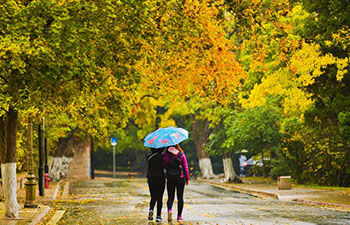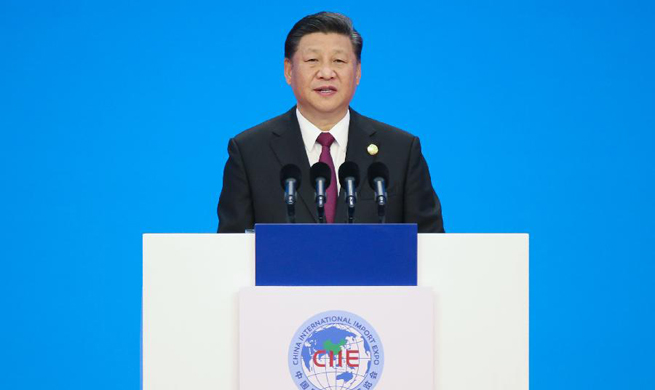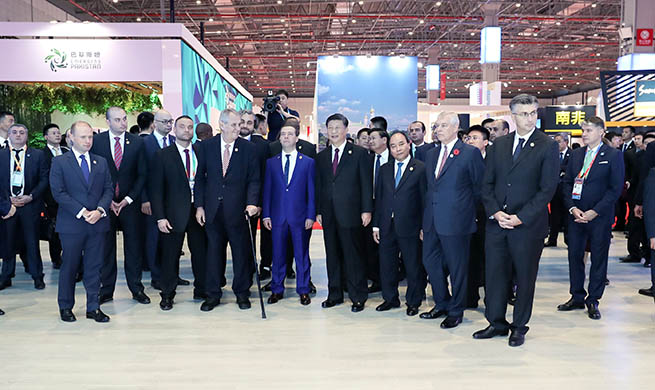BERLIN, Nov. 7 (Xinhua) -- The southern state of Bavaria has the worst traffic situation in Germany and ranks last in the biannual state index for mobility and environment 2018/19, which was published in Berlin on Wednesday.
The study, which was commissioned by the German environmental organization BUND, the Pro-Rail Alliance and the German transport safety council (DVR), evaluates five factors regarding traffic: safety, noise reduction, land consumption, climate protection and air quality.
According to the study, Bavaria has the highest nitrogen dioxide concentration in its cities. Only the German city-state Hamburg has the same high value with 27 micrograms per cubic meter.
"The state government of Bavaria believes that traffic-related environmental problems will solve themselves in the future through modern cars, for example," traffic expert of BUND Arne Fellermann told Xinhua on Wednesday.
Fellermann said the climate protection goal of the Bavarian state government would not be very ambitious. Bavaria is the only German state in the study to have once again not published any figures on CO2 emissions caused by traffic in 2017.
Until 2020 Bavaria wants to emit less than 6 tons of CO2 per inhabitant per year in total. This figure was already reached in 2007.
According to the traffic expert, driving bans are currently the most important measure for citizen protection in regard to high emission levels.
"But in many cases they are not the most intelligent solution," explains Fellermann. The introduction of the so-called Blue Badge, which labels vehicles that comply with the latest emissions standards, would be the best solution.
First place in the study is taken by Baden-Wuerttemberg, which has the lowest noise pollution in Germany. The state is doing well in terms of traffic safety but performs worse regarding climate protection and air quality.
The goal of the German government is to reduce greenhouse gas emissions nationwide by 40 percent compared to 1990. According to the German Environment Agency (UBA), the energy sector, trade and industry have been able to record significant reductions of up to 35 percent in greenhouse gas emissions, whereas transport in Germany emits 4 percent more CO2 in 2018 compared to 1990.
Considering the challenges and goals that Germany has set itself, especially in regard to climate protection and the Paris Climate Protection Agreement, there would still be a lot to improve, said traffic expert Fellermann. "BUND is thus calling for even greater efforts to be made by the federal states to improve the quality of life, especially in cities."













